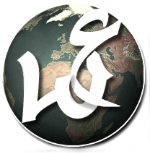AWF in Europe and the World
You are here
The Arab-West Foundation is based in the Netherlands and gets support from a number of European organizations including Kerk in Actie (The Netherlands) and Missio (Germany).
Members of our organisation have delivered in past years lectures in various European countries, including the Netherlands, Belgium, Germany, UK, Denmark, Czech Republic, Austria, Spain, Greece, and Norway.

We advocate a better understanding between the Arab World and Europe. One method of accomplishing this goal is by meeting with meeting with political figures and members of parliament in various countries. AWF would like such figures to be more active in relationship building and bridging the gap between Europe and the Arab World.
Members of European Parliaments for Euro-Middle Eastern Dialogue
The Arab-West Foundation wishes to partner with Members of Parliament in European countries, the European Parliament, European Institutions and European organizations supporting the principle of freedom of religion and expression with respect for differences in the Euro-Mediterranean countries.
A few activities organised by AWF initiated its wider European interest:
- 2006: AWF's sister organisations in Cairo, CIDT (tb) and CAWU were visited by former Dutch Prime Minister Andreas van Agt in a clear expression of support.
- 2008: HRH Prince Hassan bin Talal of Jordan, called the work of Intercultural Dialogue Group a "vector for change" during the launch of the ENAWU initiative.
- 2012: Bjørn Bue's Human Rights Memorial Lecture for 2012: Love amid fear and conflict: Muslim-Christian relations in Egypt 2012
- May 2012 lecture to the European Parliament in Brussels at the bequest of the European People's Party (EPP), European Conservatives and Reformists Group (ECR), and the Commission of the Bishop's Conferences of the European Community (COMECE).
- October 2012 Egyptian delegation to the European Parliament, made up of members from el-Nour, Wafd, Free Egyptians Party, Tagammu Party and FJP Egyptian political parties.
Engagement is also achieved through the lectures held by AWF director, Cornelis Hulsman, who has participated and delivered dozens of lectures at institutes, universities, think-tanks, NGOs, in addition to religious establishments such as mosques and churches within Europe and across Egypt.
Lectures and meetings affiliated with the Intercultural Dialogue Group have been held at:
- The University of Edinburgh, Azhar University, University of Maastricht, University of Salzburg, University of Vienna, University of West Bohemia, Cairo University, School of Mission and Theology (MHS) in Stavanger, TU Delft, the Institute of Social Studies in the Hague, Ro-yah Center for Social Studies, Korean Center in Cairo, Christian Reformed Church in the Hague, the German Evangelishe Akedemien, the Dutch Council of Churches, the PKN Church, the Byzantine Church in Utrecht, Catholic Center in Cairo, CEOSS Dialogue Forum in Assuit, Coptic Orthodox Cathedral in Cairo and Pax Christi International.
Conferences in South Korea and Sydney, Australia (2022). Other meetings have been held with staff and affiliates of the Dutch, German, and US embassies in Cairo, as well as Egyptian Embassies in Europe as well as the German and Egyptian Ministeries of Foreign Affairs. The work of the Intercultural Dialogue Group has been praised by scholars, journalists and dignitaries.
Further intercultural dialogue is facilitated through the hosting of interns from around the world. AWF's sister organisation - the Center for Arab-West Understanding - is one of the largest internship providers in Egypt and since 2006 has hosted over 300 interns from 30 different countries from 6 continents.
Why the Focus on Egypt?
Egypt is of particular importance for several reasons. It is the most populous Arab country - indeed Cairo is the largest metropolitan area on the African continent. It contains the seat of the Arab League, and the traditional Muslim center of learning at the Azhar in addition to the presence of the ancient Coptic Church, which represents the largest Christian denomination in the Middle East. Moreover, Egypt has been a major cultural center in the Middle East and serves as a gateway between the Asian and African continents.
Within Egypt, sister organisations - CIDT (LLC) and CAWU - maintain good relations with Christians and Muslims of all political colors, including liberals, socialists and Islamists. The Centers are also capable of bringing people from very diverse backgrounds together for mutual understanding, which has only has been possible because we have maintained an explicit non-partisan approach with a critique on misreporting.
The 2011 Arab Spring ended old rulers, but also fuelled political chaos and polarized people across the political spectra. The experience of the above mentioned organizations in the years before the Arab Spring, the large network and the continuous non-partisan approach have made the Arab-West Foundation, is in particular suitable to play a major role in fostering intercultural and inter-religious dialogue.
AWF-NETWORK:
Members of Parliaments in Europe who actively support changes to address the above mentioned issues are invited to join our network and will obtain full access to our database. They can commission AWF to investigate and write reports on issues of concern and mutual interest. We also can facilitate visits to encourage mutual exchange of ideas and visions.

